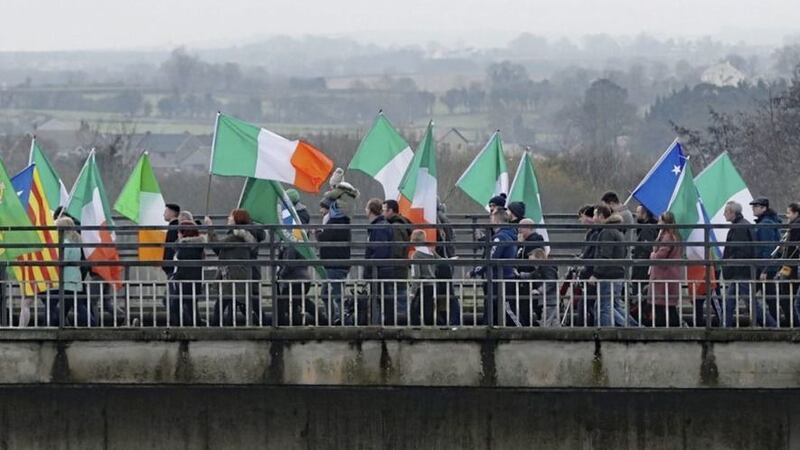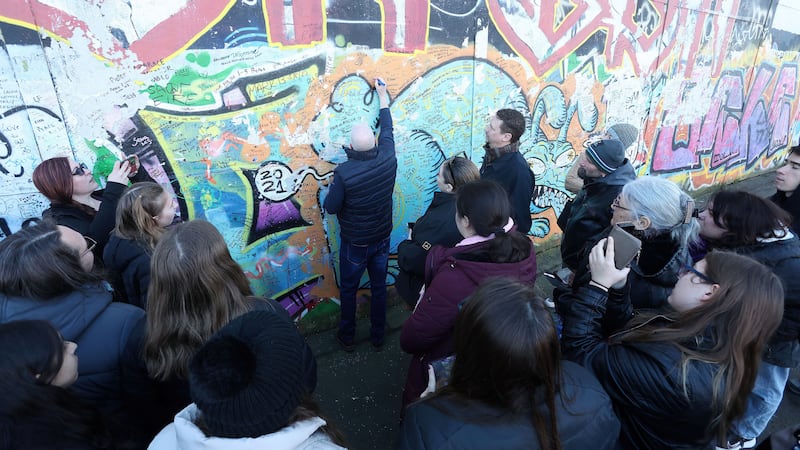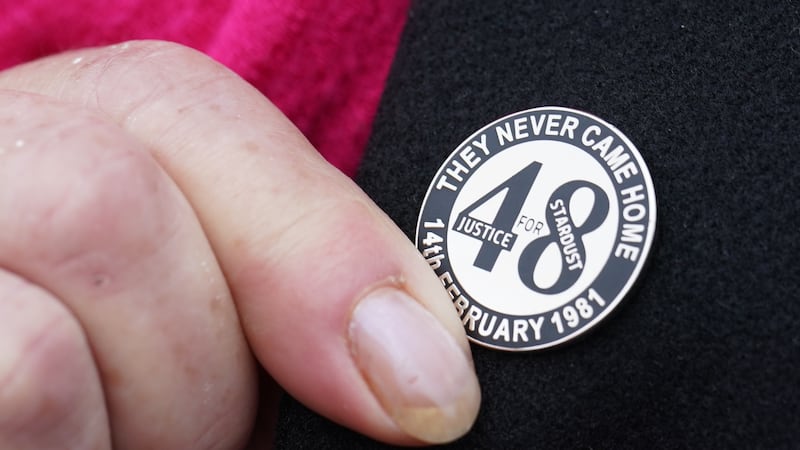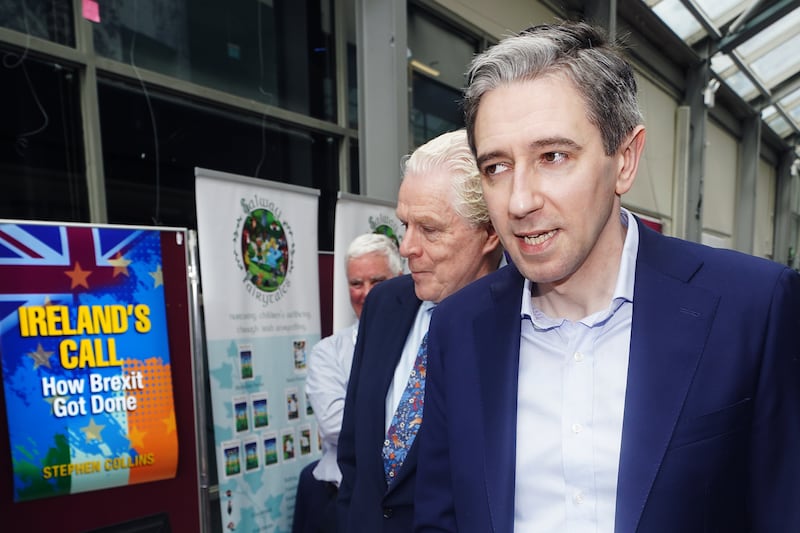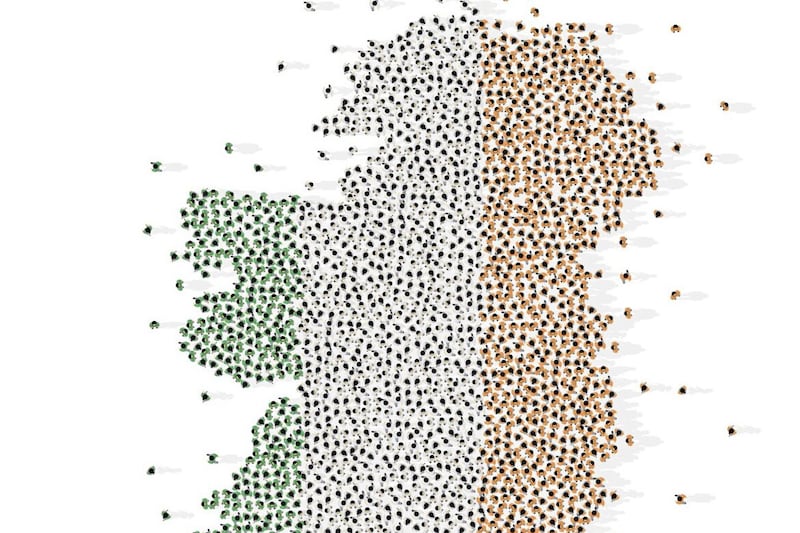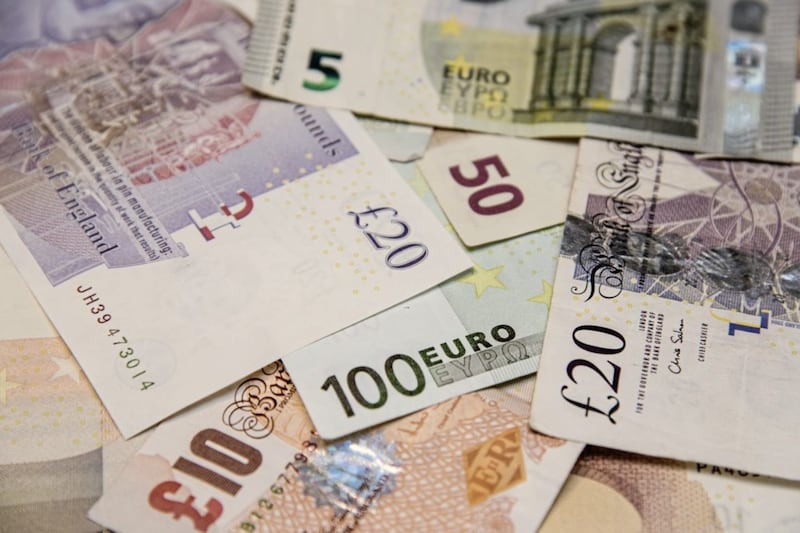Plans for a united Ireland form part of a Fianna Fail and Fine Gael joint framework document for a potential coalition government.
The document contains 10 key "pillars" to improve Irish society.
The pillars are: reigniting and renewing the economy; universal healthcare; housing for all; a new social contract; a new green deal; a better quality of life for all; supporting young Ireland; opportunities through education and research; a shared island; at the heart of Europe: global citizenship.
[ READ MORE: Fine Gael and Fianna Fáil agree framework on forming governmentOpens in new window ]
The document includes a commitment to set up a unit in the Department of the Taoiseach "to work towards a consensus on a united island".
It states: "We are committed to working with all traditions on the island, to build consensus around a shared future.
"This consensus will be underpinned by the terms and institutions of the Good Friday Agreement and by absolute respect for the principle of consent enshrined therein."
"This unit will examine the political, social, economic and cultural considerations underpinning a future in which all traditions are mutually respected."
The document states the two parties' focus "is to improve the wellbeing of the Irish people and society."
"In achieving this, the immediate challenge for us is to recover and rebuild in the aftermath of the Covid-19 emergency, and the havoc that it has brought to the lives of people and to the social and economic security of families.
"Beyond this, our focus is to respond decisively to the agenda of change in terms of housing, health, climate action and quality of life, which came through so clearly from the general election."
"To assess the performance of a new government, we must look beyond economic indicators.
"We will create new, credible, quality-of-life measures of individual and societal well-being and progress."
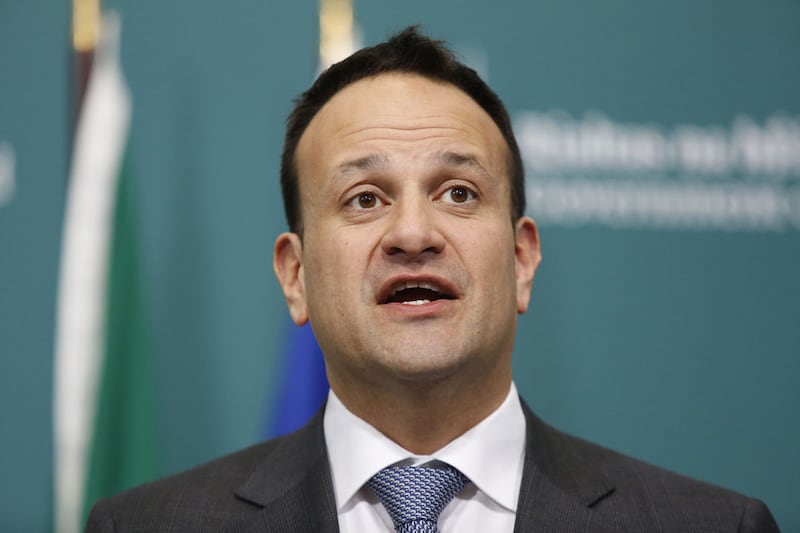
The two parliamentary parties will be briefed on the policy document today ahead of engagement with other potential coalition partners.
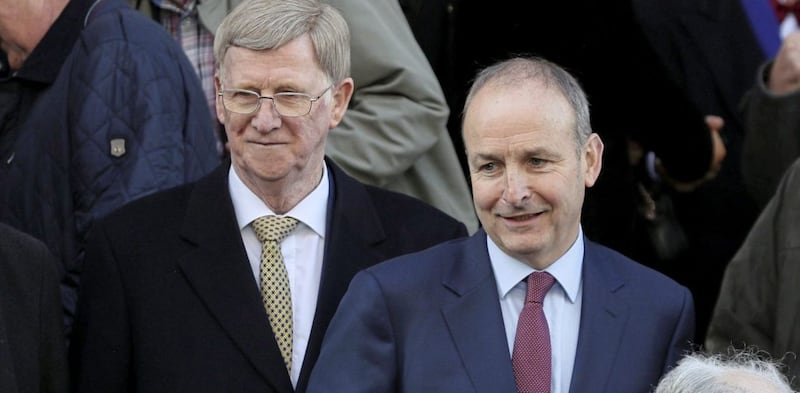
Following the conclusion of the parliamentary parties, Leo Varadkar and Micheal Martin will together approach other party leaders of the Green Party, the Labour Party and the Social Democrats.
The document will be shared with the other parties and the group of Independent TDs.
Mr Martin and Mr Varadkar reached agreement on Tuesday following weeks of talks.

Fianna Fail's negotiator, Michael McGrath, said the document sets out a number of "key missions" that an incoming government will need to deal with.
Speaking to RTE Morning Ireland, he said: "First and foremost being, of course, dealing with the enormous economic fallout from the Covid-19 crisis, the preparation of a national economic recovery plan, but also drawing on the lessons from the general election and dealing with the issues that people demand."
He said the issues include affordable housing and universal access to health care.
He added: "It also sets out a renewed focus on quality-of-life issues, on wellbeing and, critically, from a Fianna Fail perspective, it again reaffirms the vital importance of our education system, of the legitimate aspiration of working towards Irish unity and reaffirming our role as a country that is fully committed to the European Union, and dealing with the challenges that will emerge again from the Brexit negotiations.
"It's a foundation document which will be the basis of discussion on a programme for government.
"It's not a programme for government, but it is the basis we believe of a negotiation that could ultimately lead to one, and we want other parties now to join us in that process with a view to meeting the enormous challenges that have been presented by the health crisis that we're still grappling with."
He said that the Fianna Fail and Fine Gael parliamentary party members will receive a copy of the document later on Wednesday.
Asked whether Mr Martin will become the next taoiseach, Mr McGrath said it was "not an issue" that was discussed by the negotiating teams.
He added: "We are a long way off the formation of a government yet because we need others to join us in that discussion and that is an issue that I'm sure has been discussed by the party leaders, and they will address that at the appropriate time, but it's not the priority issue for us know."
Justice Minister Charlie Flanagan said the deal between Fine Gael and Fianna Fail is a "no brainer" but that a lot more work needs to be done in order to form a stable coalition.
"We need to move on and see if we can form a government.
"It has been over two months since the election.
"I believe it is a no brainer.
"I very much welcome the proposed deal between the two historic foes.
"There will be an equality of authority between Fianna Fail and Fine Gael.
"There will be an equality of ministers because parties will be entering this historic agreement and doing so on the basis of equality."
Speaking to Newstalk FM, he said: "There is a lot of work to be done here.
"All we have is a framework and a handshake.
"We have to ensure flesh is put on the bones of the deal."
